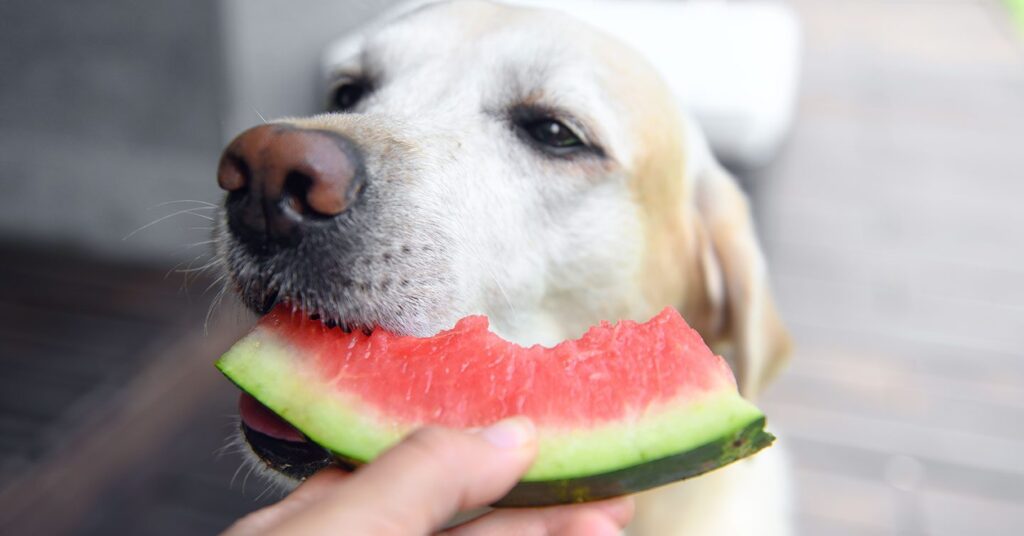Nothing compares to enjoying a slice of watermelon while spending time in the sun with your furry best friend.
You might be hesitant because you are unsure whether it is safe for dogs to consume watermelons with white seeds or not.
Because they are difficult for these dogs to digest, watermelon white seeds can upset their stomachs and obstruct their intestines.
This article also lists other fruits that could be harmful to your dog and describes how to remove the white seeds from watermelons.
Clubs Offering:
Everybody loves watermelon, even dogs. But is it safe for them to eat?.
The answer is yes, with a couple of precautions. First, avoid eating seeds as they may result in an intestinal blockage. Additionally, it’s a good idea to remove the rind because it may upset your stomach.
The fruit itself is a health food powerhouse, low in calories and bursting with nutrients like vitamins A, B6, and C as well as potassium. Additionally, the fruit is excellent for hydration on a hot day because it only contains about 50 calories and 92 percent water per cup. Additionally, it contains no fat or cholesterol, so it is essentially guilt-free.
What are the health benefits of watermelon for my dog?

Watermelon is rich in antioxidants, potassium, vitamins C, B6, and A. It’s also packed with Lycopene and high fiber. In fact, the Watermelon Promotions Board, a department of the USDA, considers watermelon a superfood. Even though it’s 92% water, besides being a superb choice for hydration on a scorching day, the high nutritional value of watermelon makes it one of the best choices as a healthy snack for both you and your dog.
Let’s explore the advantages of watermelon for your health in more detail:
Are all parts of watermelon safe to eat for dogs?
Not all watermelon components are suitable for dogs to consume. Watermelon’s green rind is difficult for dogs to chew, especially small dogs with smaller teeth. This implies that your dog might swallow a sizable piece of watermelon rind whole without chewing it. This difficult-to-digest rind might become stuck in your dog’s digestive system and result in a potentially harmful intestinal blockage.
Dogs should not consume watermelon seeds, particularly the large, black seeds that are found in seeded watermelons. These tough seeds can become clumped together and obstruct your dog’s digestive tract because they are difficult to digest. If a large dog ingests one or two seeds, don’t be alarmed; they should be fine. However, keep smaller dogs away from the watermelon seeds’ black color.
FAQ
What should I do if my dog eats watermelon seeds?
If your dog ate some watermelon seeds, you shouldn’t be concerned because they are not toxic to dogs. Watermelon is healthy for your dog (in moderation), but eating too much of it can result in intestinal blockage, so it’s best to remove the seeds first.
Do white watermelon seeds digest?
When you swallow watermelon seeds raw, not much happens. Do you digest them, or do they just pass right through you? They essentially just pass through your digestive system undigested, much like when you swallow a piece of gum.
Do watermelon seeds harm dogs?
Even though watermelon seeds aren’t poisonous and won’t harm your dog if it eats one or two of them, they are not safe for dogs. However, eating too many seeds might cause an intestinal blockage.
What are the white seeds in watermelon?
White seeds are really just immature black seeds. Because they are just starting to grow and develop, they are delicate and almost translucent. If you plant the infertile seeds, they won’t grow into a watermelon plant. However, they are so soft that swallowing them with the flesh is not a hassle.
